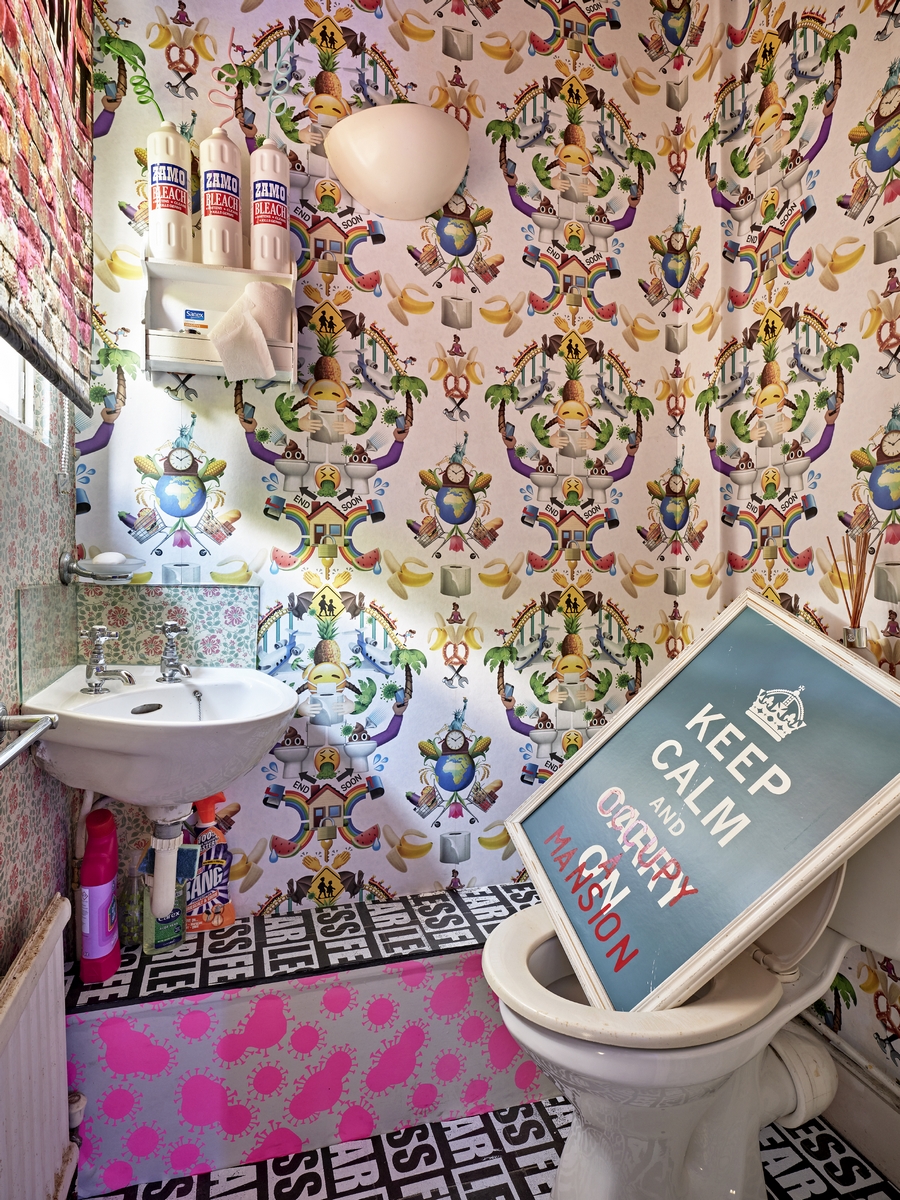Schoeni Projects in collaboration with HK Walls presents disCONNECT, an exhibition featuring ten international artists with site specific installations inside a Victorian townhouse in South West London. Opening during the COVID-19 pandemic, the show reflects on the creative and physical constraints of the current global crisis, exploring psychological and political reactions to the crisis, as well as the role of technology as conduit between the two.
Full list of participating artists includes Adam Neate (UK), Aida Wilde (Iran), Alex Fakso (Italy), MR CENZ (UK), David Bray (UK), Herakut (Germany), Icy and Sot (Iran), Isaac Cordal (Spain), Vhils (Portugal), and ZOER (Italy).
Book free tickets to reserve your time slot here.
Repositioning one of the house’s toilets as a ‘Pandemic Mausoleum’, London based artist Aida Wilde presents her signature text works on wallpaper and floor lino with slogans sharing reactions to the pandemic. Her iconic pink dotted wallpaper has gone literally viral, morphing into a Covid-19 virus shape.
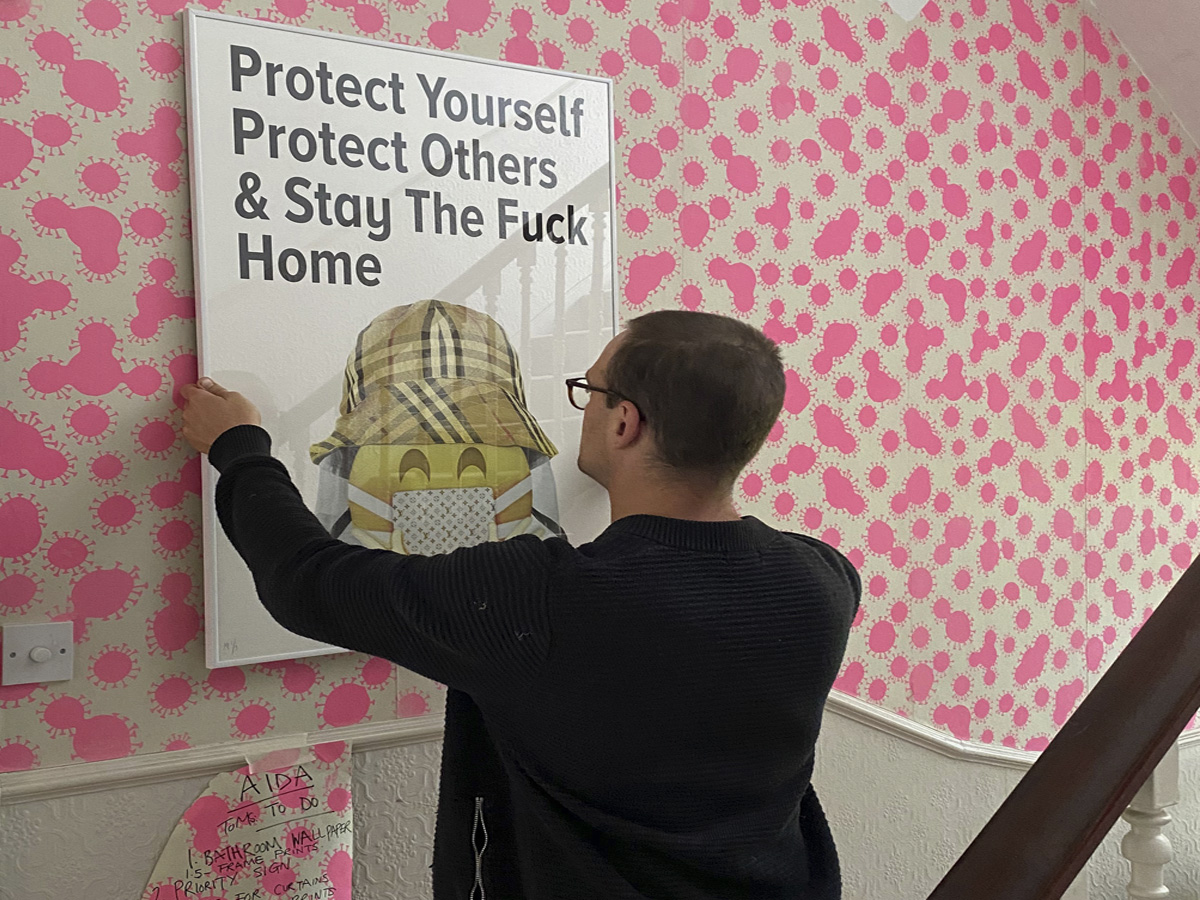
Aida Wilde ©
Slogans on the walls mention ‘99% ARE IN THIS TOGETHER’, ‘STAY THE FUCK AT HOME’ with an emoji wearing a Burberry hat and a LV protective mask (a reference to luxury brands announcing that they would produce non surgical masks and protective equipment for frontline workers).
The Pandemic Mausoleum is adorned with a site-specific wallpaper, based around a traditional 16th century Damask fabric. Patterns include emojis that tells the capsule story of the pandemic (covid-19) with elements ranging from bats (which many believe was the source of the virus) to a masked toilet roll hugging head, palm trees, joggers, rainbows, a house in lockdown, post boxes, and clapping hands ‘for our heroes’. The lino floor has been covered with ‘FEAR LESS / LESS FEAR’
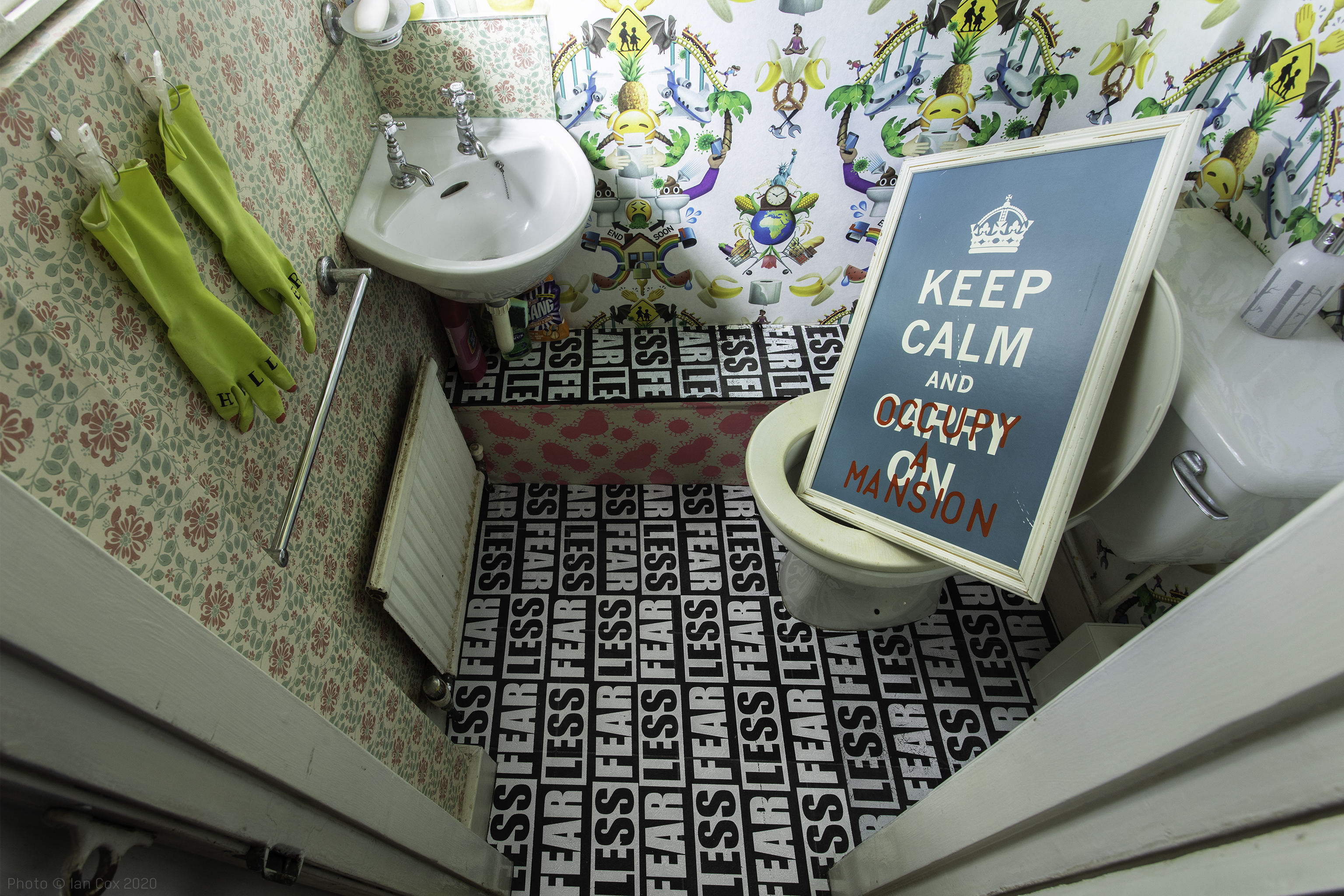
Aida Wilde © Ian Cox
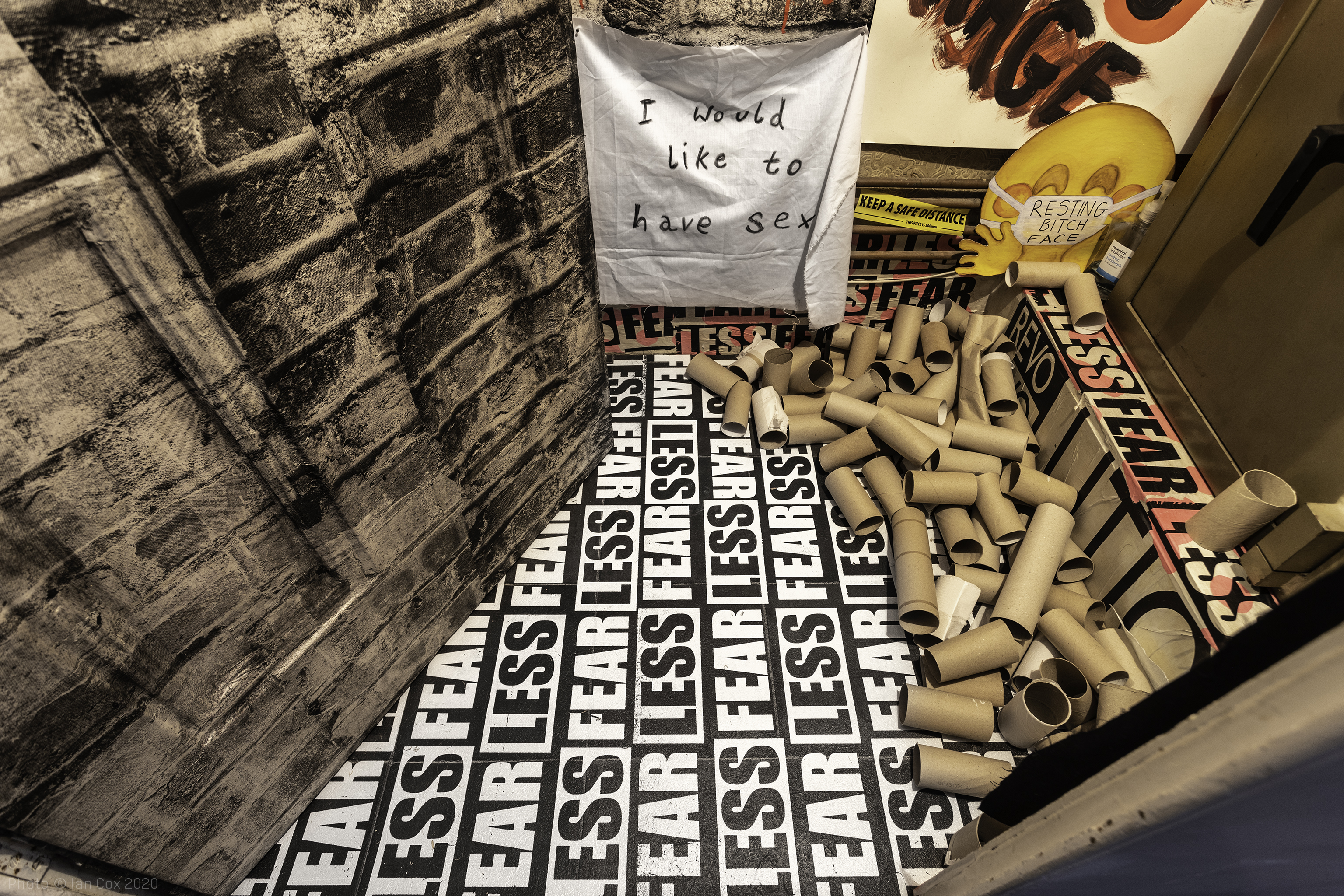
Aida Wilde © Ian Cox
Surrounded by everyday objects which have become totemic of the contemporary climate – toilet roll tubes donated by neighbours, discarded objects from “lock-down” spring cleaning and bottles of bleach sourced locally from the independent manufacturer Zamo – the works are presented alongside hazard tape, demarcating ‘socially distanced’ two metre intervals.
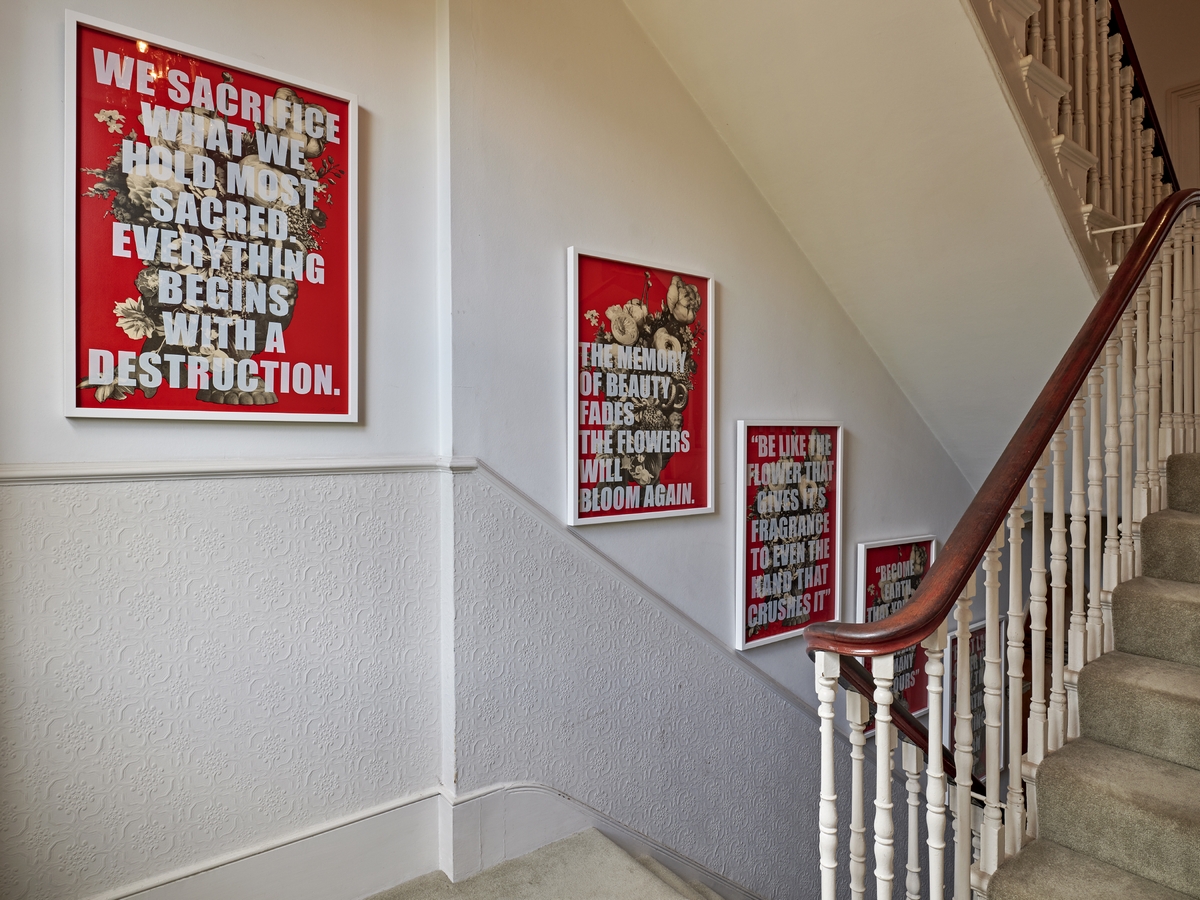
Aida Wilde © Nick Smith
Aida Wilde also created specific paraphernalia: ‘Covid 19 Germ Warfare’ Tshirt and face masks are an ode to Keith Haring’s 1987 “Aids Is Political – Biological Social (Germ) Warfare” slogans. Various comparisons/similarities can be made between the two epidemics in terms of the hysteria attached to it, who and what is targeted (specific demographics / race / gender) – for example, Black Men are four times more likely to get Covid-19 and more men have contracted the virus than women. The T-shirt is displayed inside a vacuumed sealed bag to further enhance the message of being “Germ Free – Dust Free” that is all illuminated by UV lights to further represent the annihilation of even more germs.
Playing with UV light, the viewers can read ‘The powerful are powerless against the invisible’.
Close to the T shirt display, a series of basketball caps with the words ‘make the world covid free again’, are inspired by Trump’s infamous red ‘Make American Great Again’ and his announcement that wearing a hat could protect from the virus.
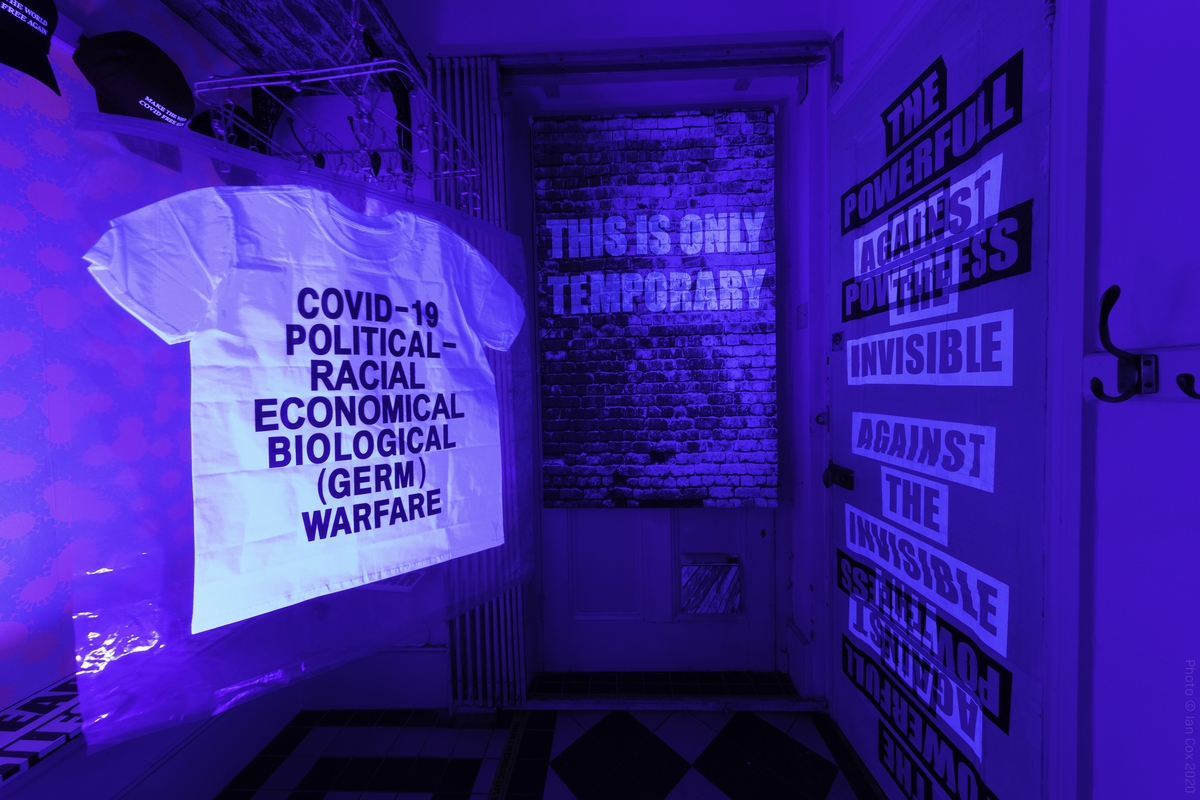
Aida Wilde © Ian_Cox_2020
In an adjoining room, Wilde transformed a notice road sign to reflect the ‘Changed Priorities Ahead’ since the lockdown has slowed a lot of people down and forced them to reassess their priorities, from daily exercise to observing nature.
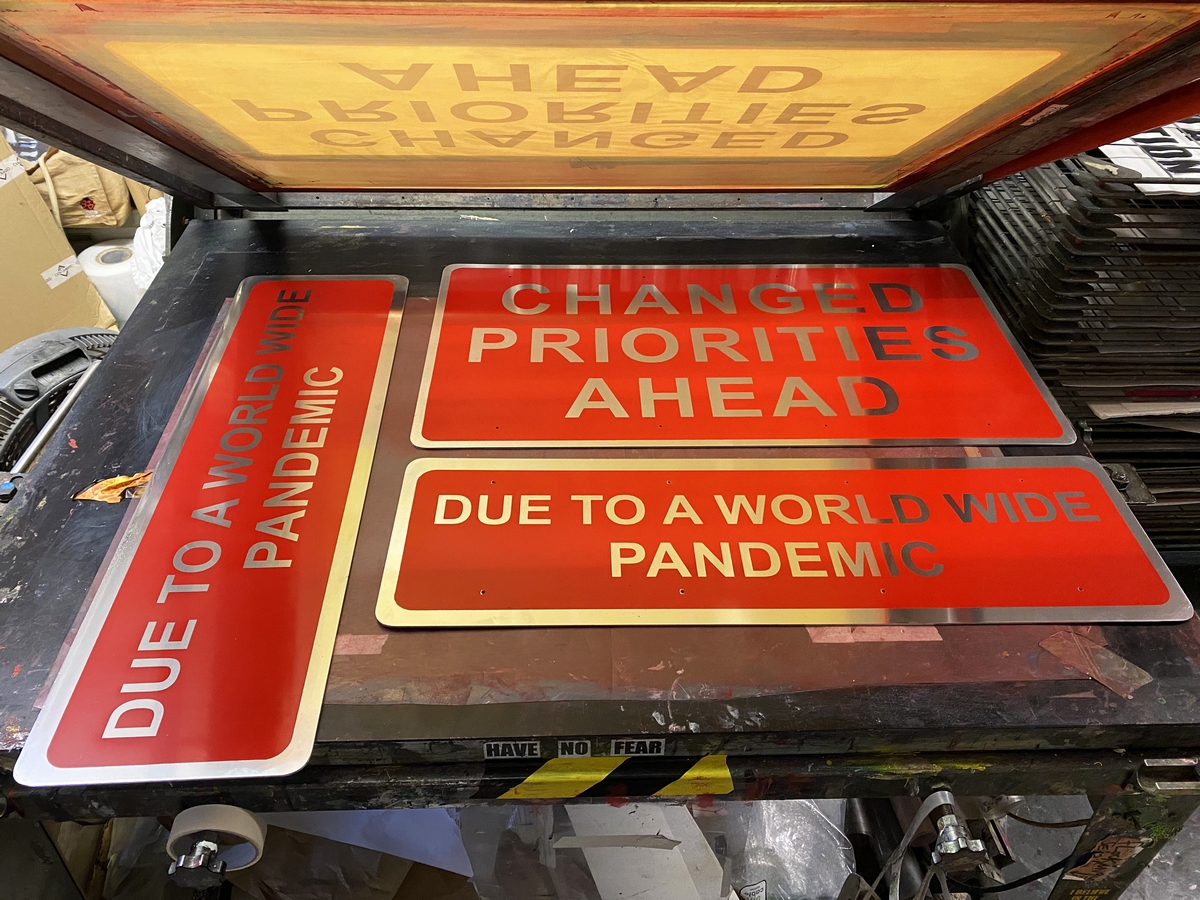
Aida Wilde ©
Notes From A Phantom curtain lace banners display writings/poems and a call to action that occurred during the UK lockdown in collaboration with Minneapolis-based artist Ego Ahaiwe Sowinski. The two pieces with their gray texts are screen printed onto black lace, reminiscent of traditional face coverings in mourning and are a reference to the unlawful murder of George Floyd in the US and the Black Lives Matter protests that took place subsequently after the killing. They speak about the importance and the power of stillness and silence from the maddening world around them.
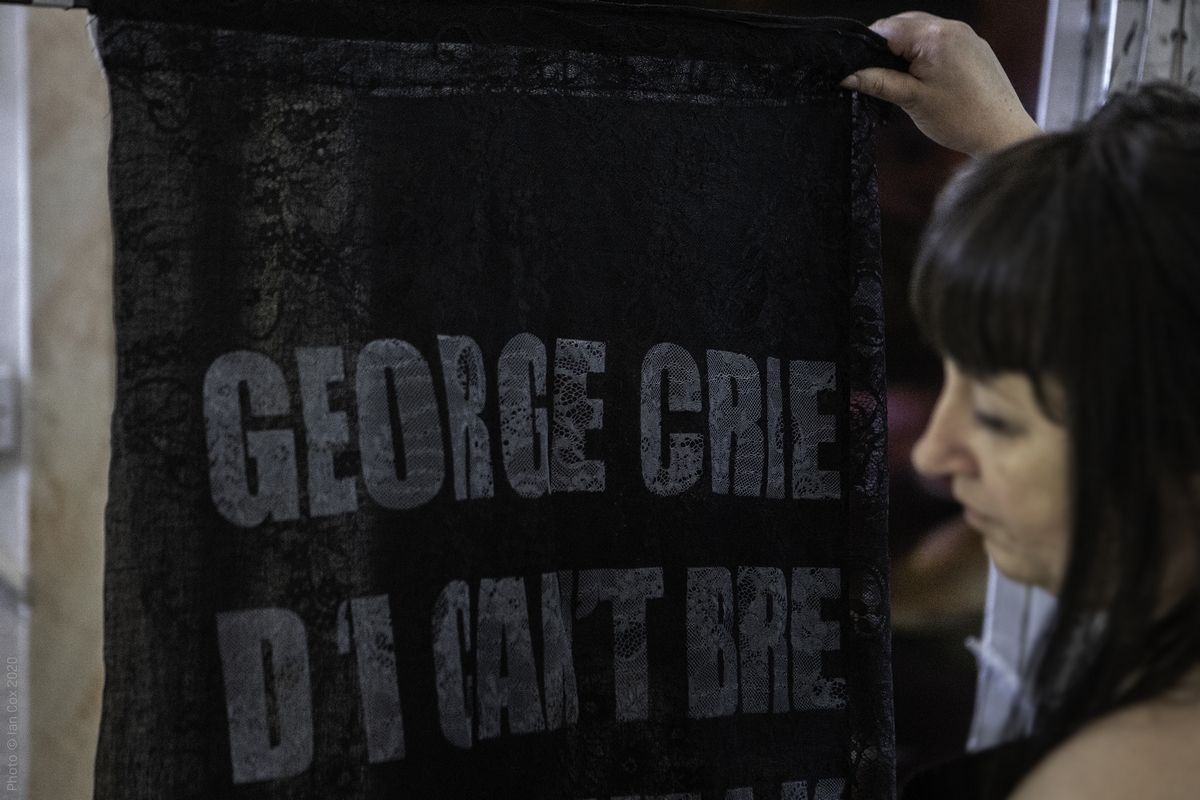
Aida Wilde © Ian_Cox_2020
In a nearby hallway, MR CENZ’s work expands the ordered patterns and colours from the house’s tiled floor into a fantastical blend of photorealism, illustration and graffiti lettering, reflective of his many street works which decorate the city of London.
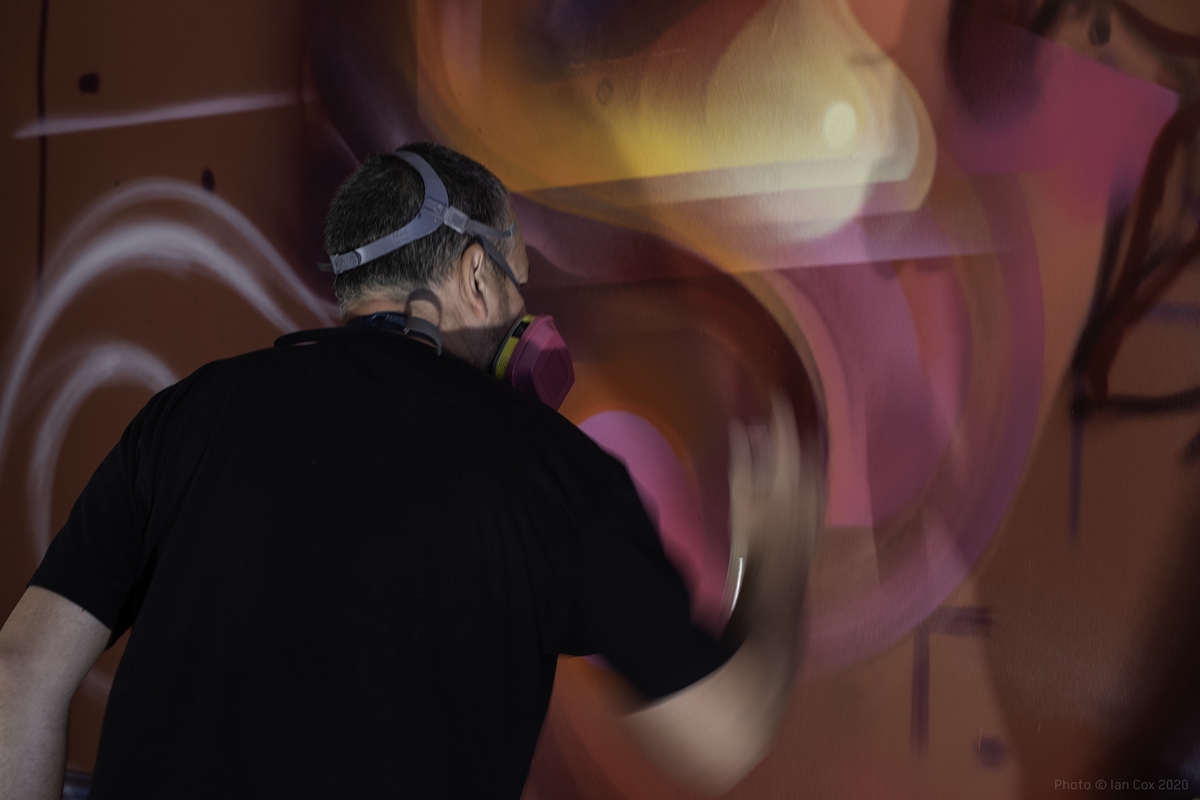
MrCenz_© Ian_Cox_2020
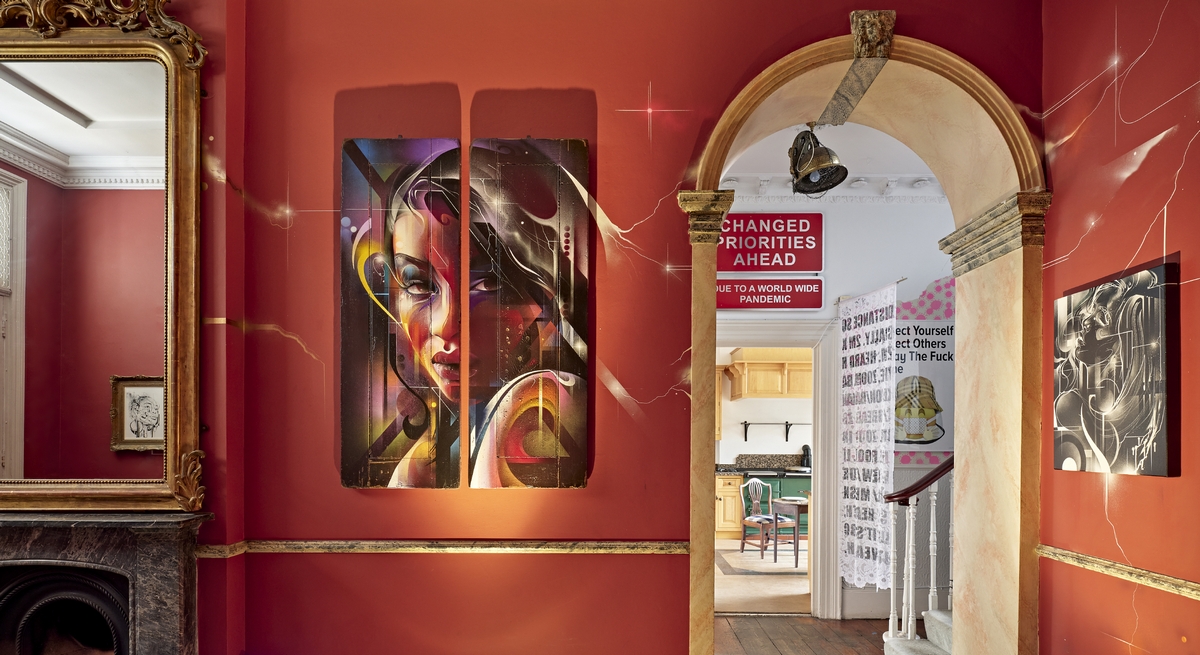
Mr Cenz © Nick Smith
Upstairs in the ‘master bedroom,’ Alex Fakso presents new and archive photography printed on vinyl across the walls, including a photographic installation incorporating an old artwork found within the house.
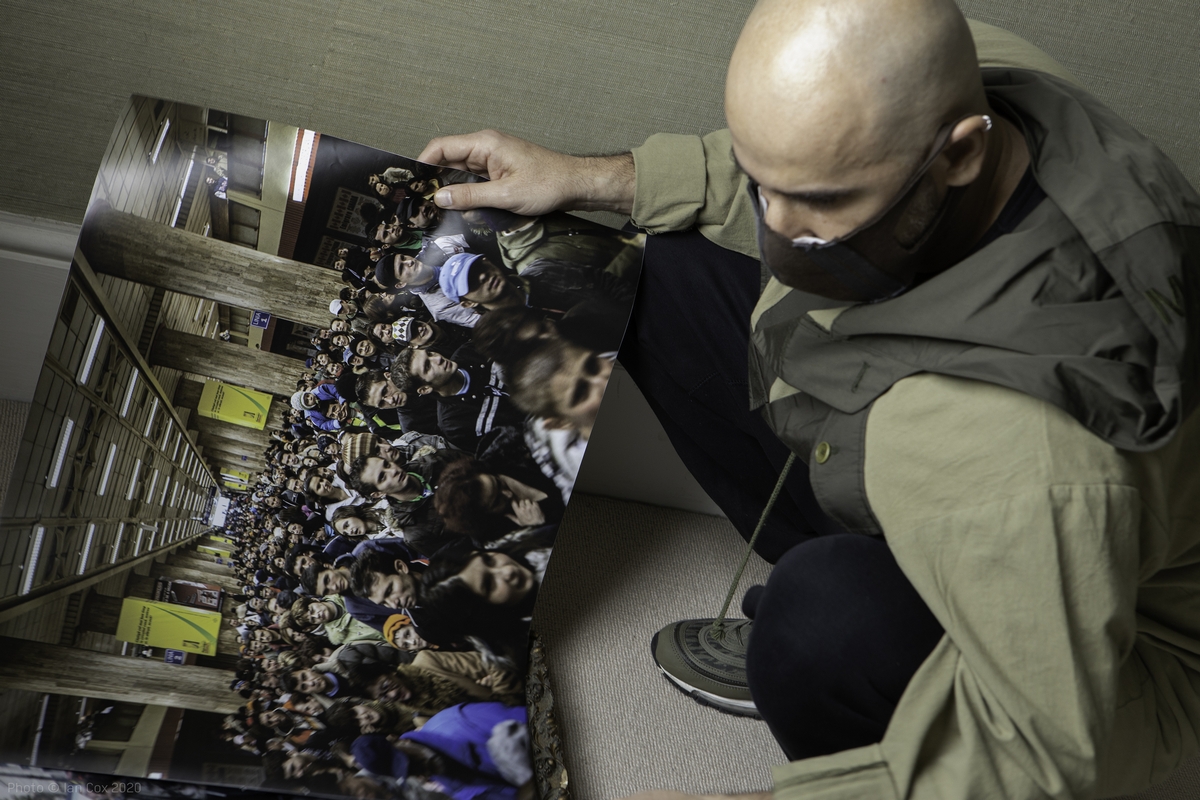
Alex_Fakso © Ian_Cox_2020
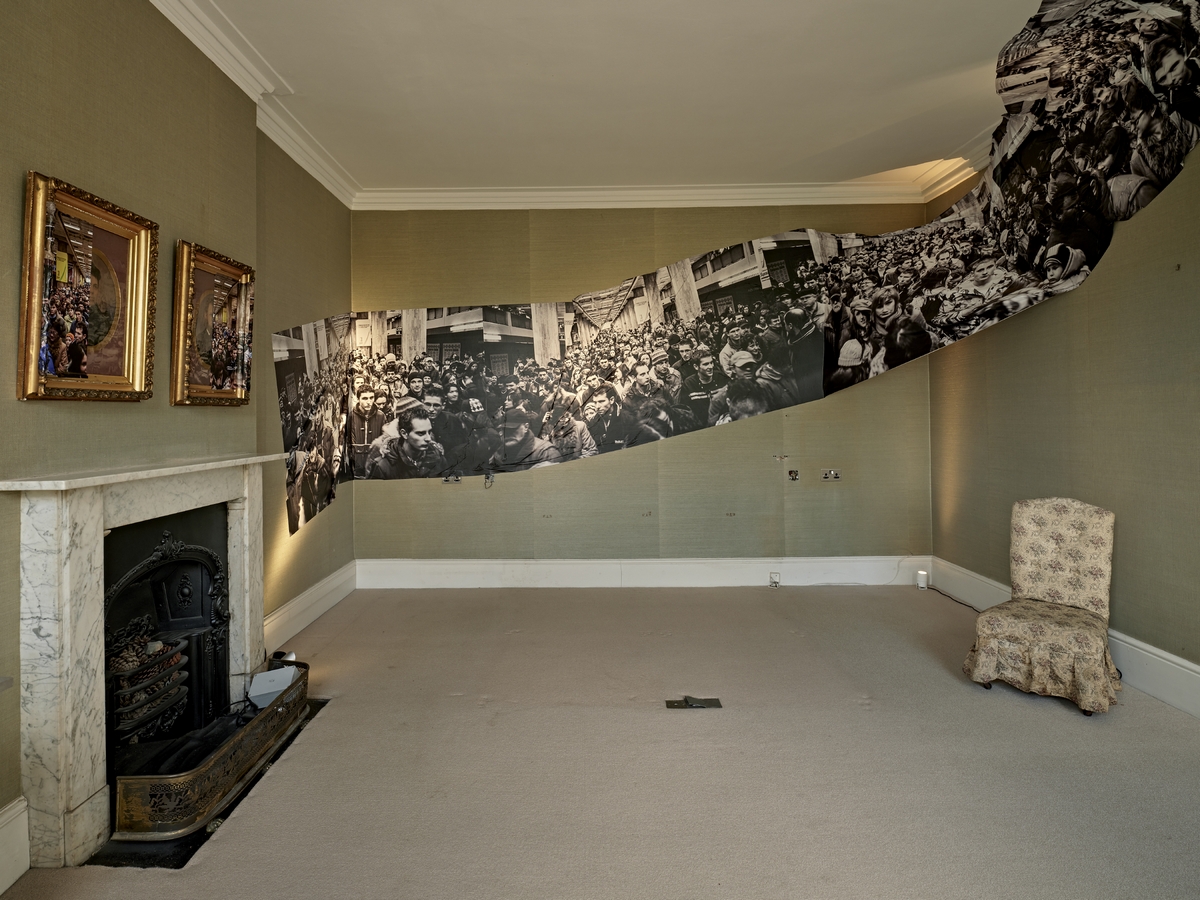
Alex Fakso © Nick Smith
In an adjoining bedroom, David Bray’s landscape paintings provide a means of escapism for audiences, whilst they remain restricted from physically travelling.
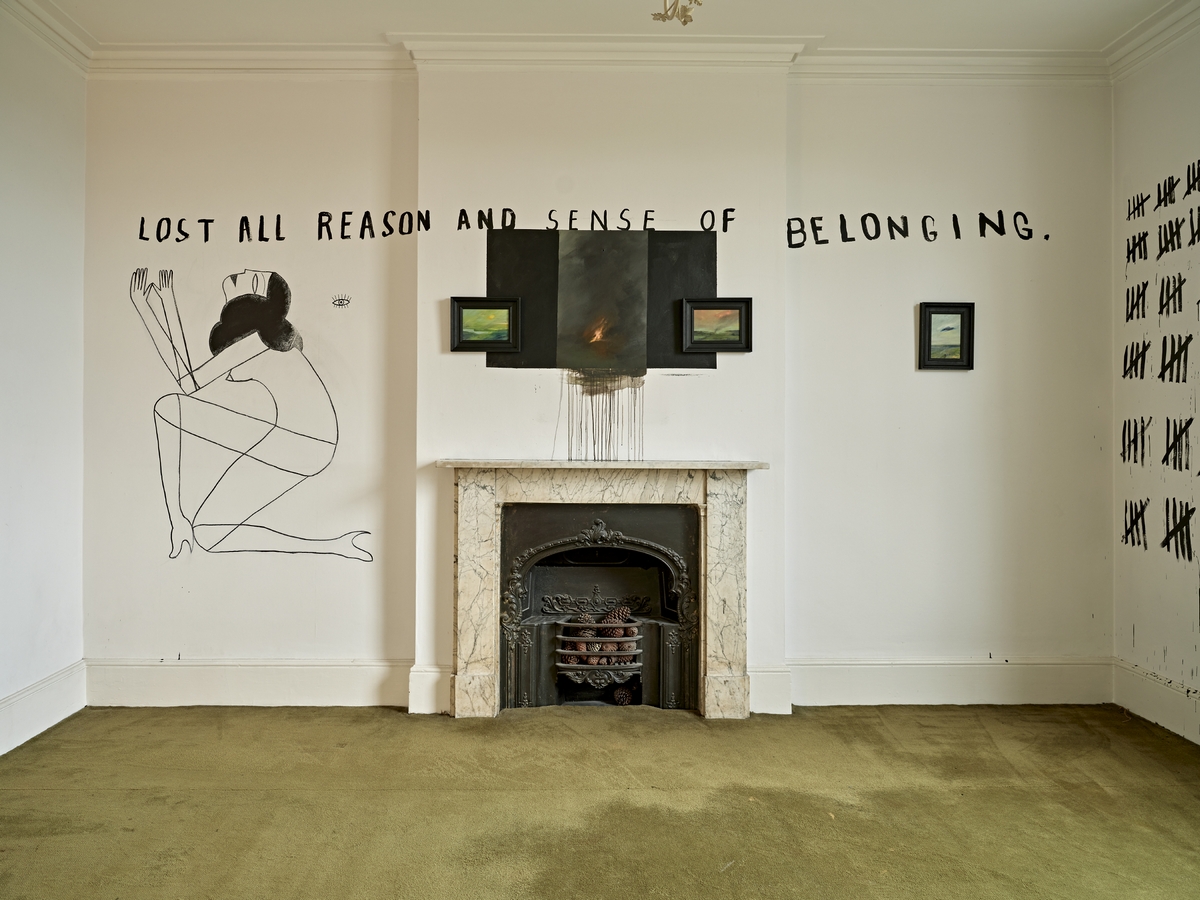
David Bray © by Nick Smith
Due to the pandemic, some of the artists have created their artworks remotely – Portugese artist Vhils transformed the house’s library doors from his Lisbon studio using his bas-relief carving technique.
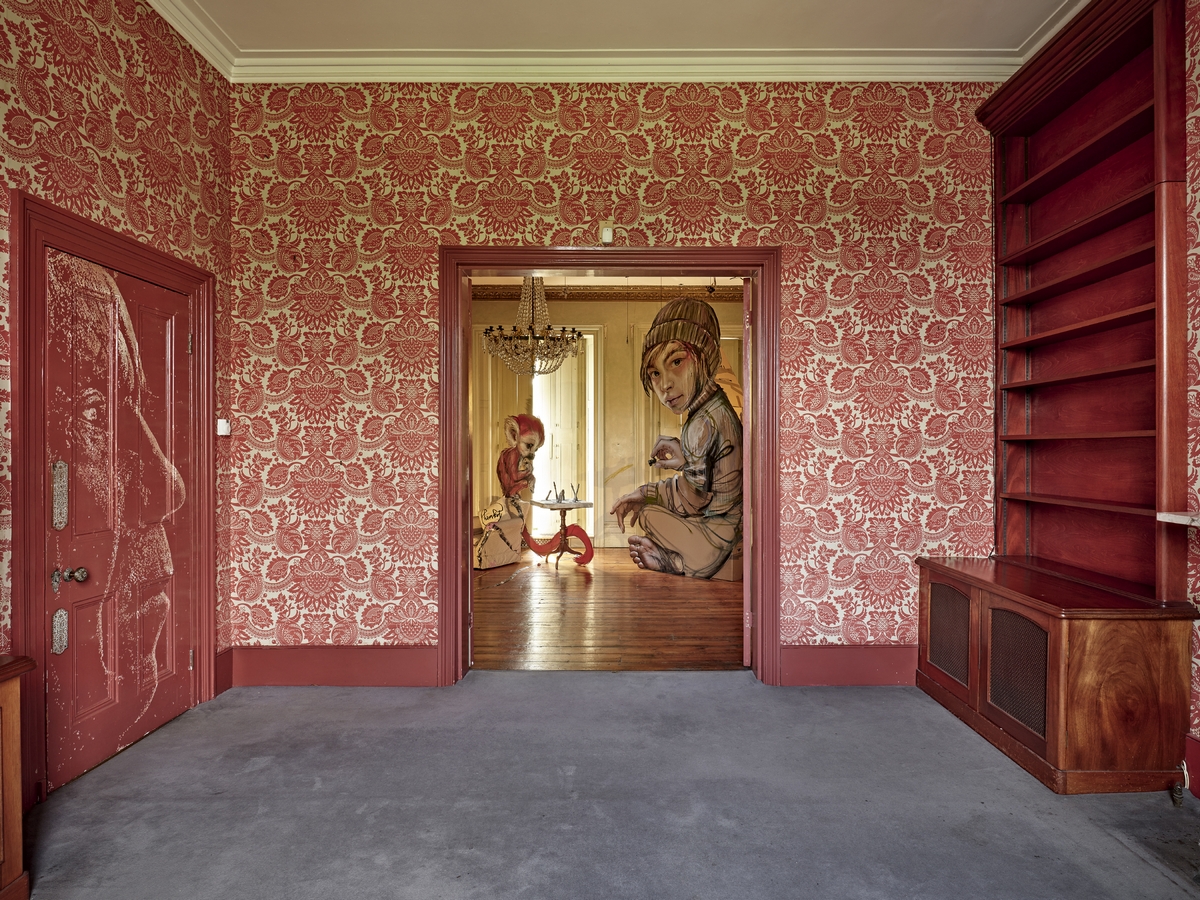
Vhils © Nick Smith
Sao Paulo-based Adam Neate created works on the house’s window blinds from his studio.
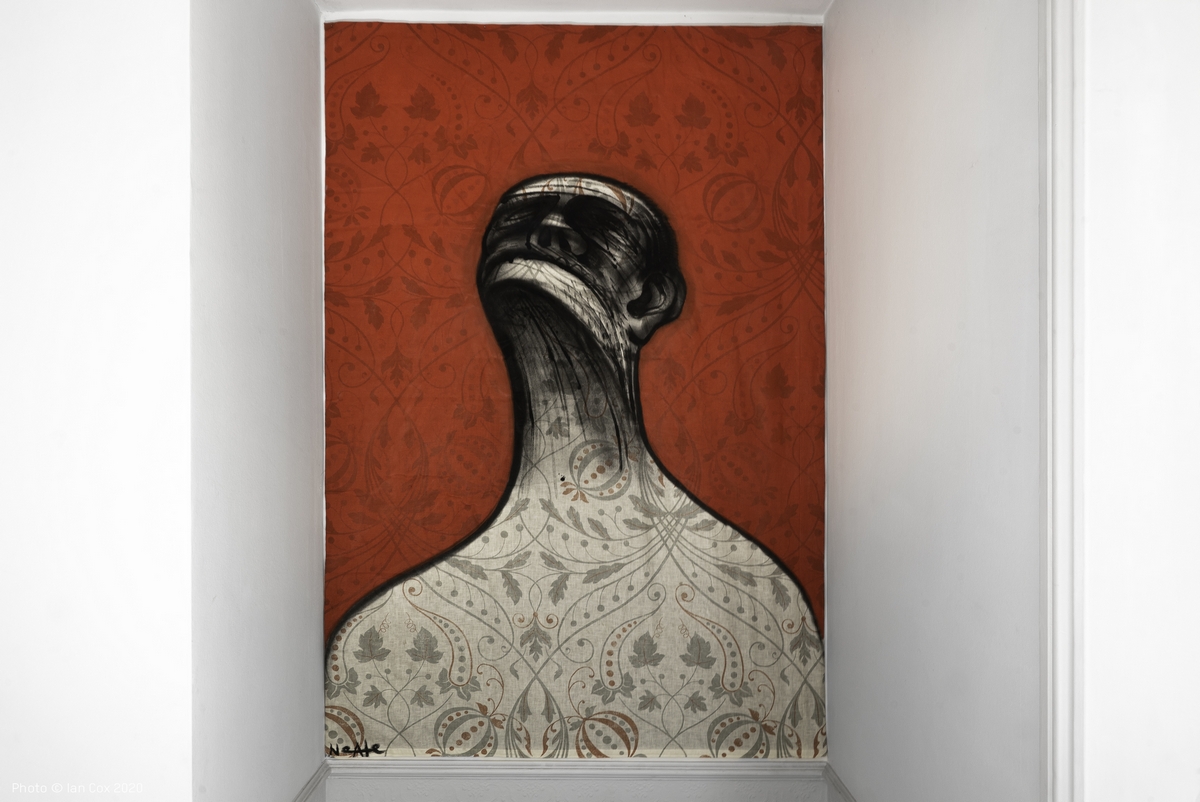
Adam Neate ©_Ian_Cox_2020
Isaac Cordal’s miniature figures have been placed throughout the house, responding directly to global images of the pandemic.
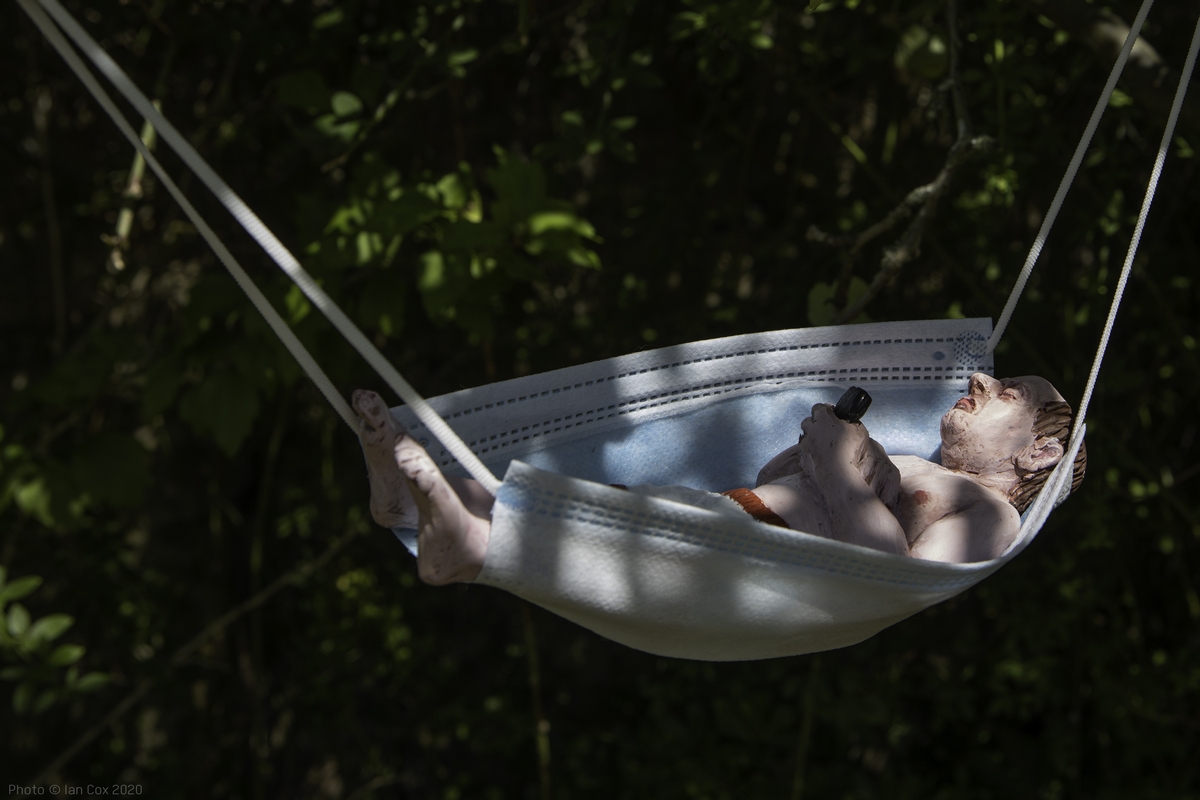
Isaac_Cordal ©_Ian_Cox_2020
Brothers Icy & Sot’s kitchen-based installation is modelled on a discarded table found within the house. Titled Socialism vs Capitalism (2020), the folding table is now complete with two folding table places: the plates and cutlery are split and hinged so they too move with the tabletop. The work reflects on the often-debilitating effects of capitalism on the poor, here represented through the most basic of human needs: food.
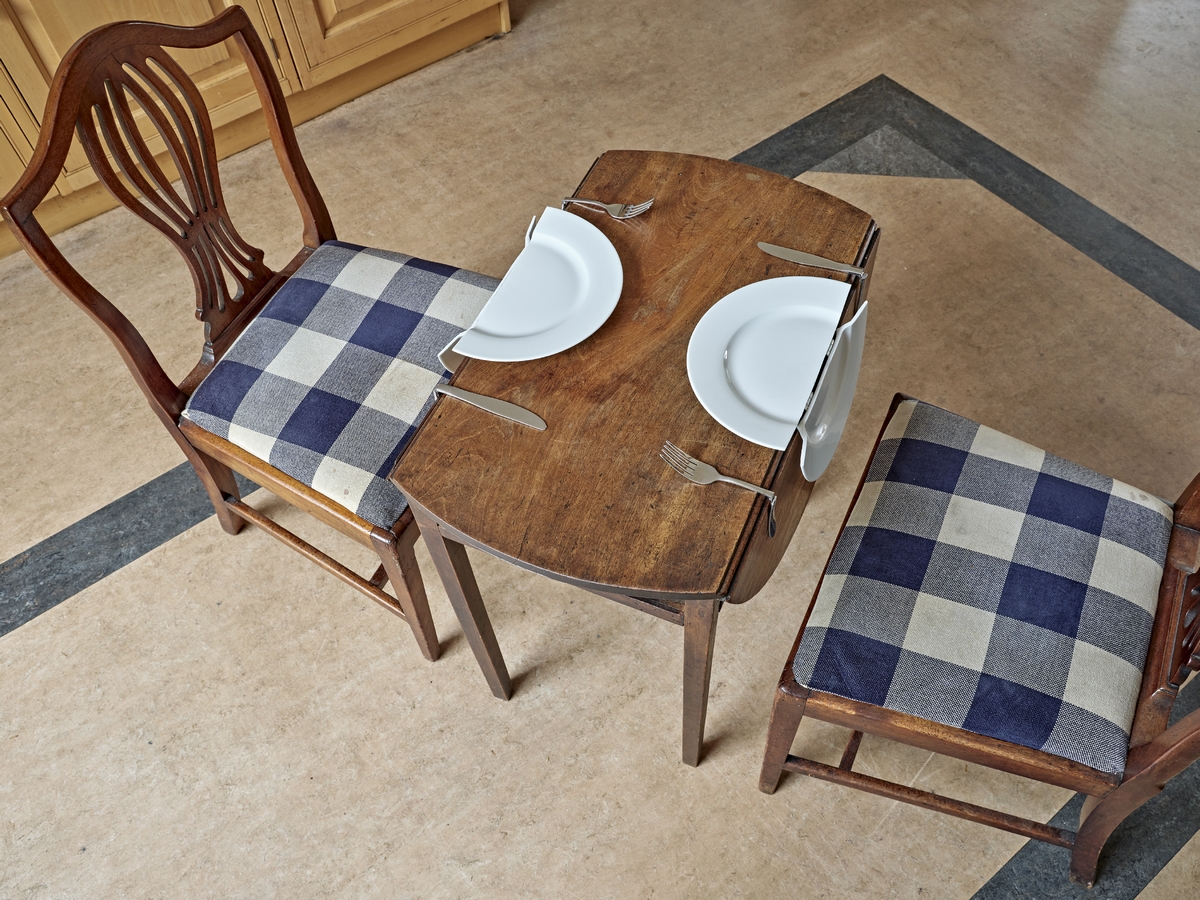
Icy and Sot ©Nick Smith
Berlin-based artist duo HERAKUT’s cardboard installation Silent Battle (2020) presents children engaged in various competitive games against an assortment of characters. Suggestive of an imaginary world conjured up to combat childhood isolation, the work also proposes that seclusion does not impede personal growth: ‘spending time challenging yourself holds the opportunity to become a better version of yourself -hopefully a nicer, kinder and more appreciative self,’ indicates the German duo.
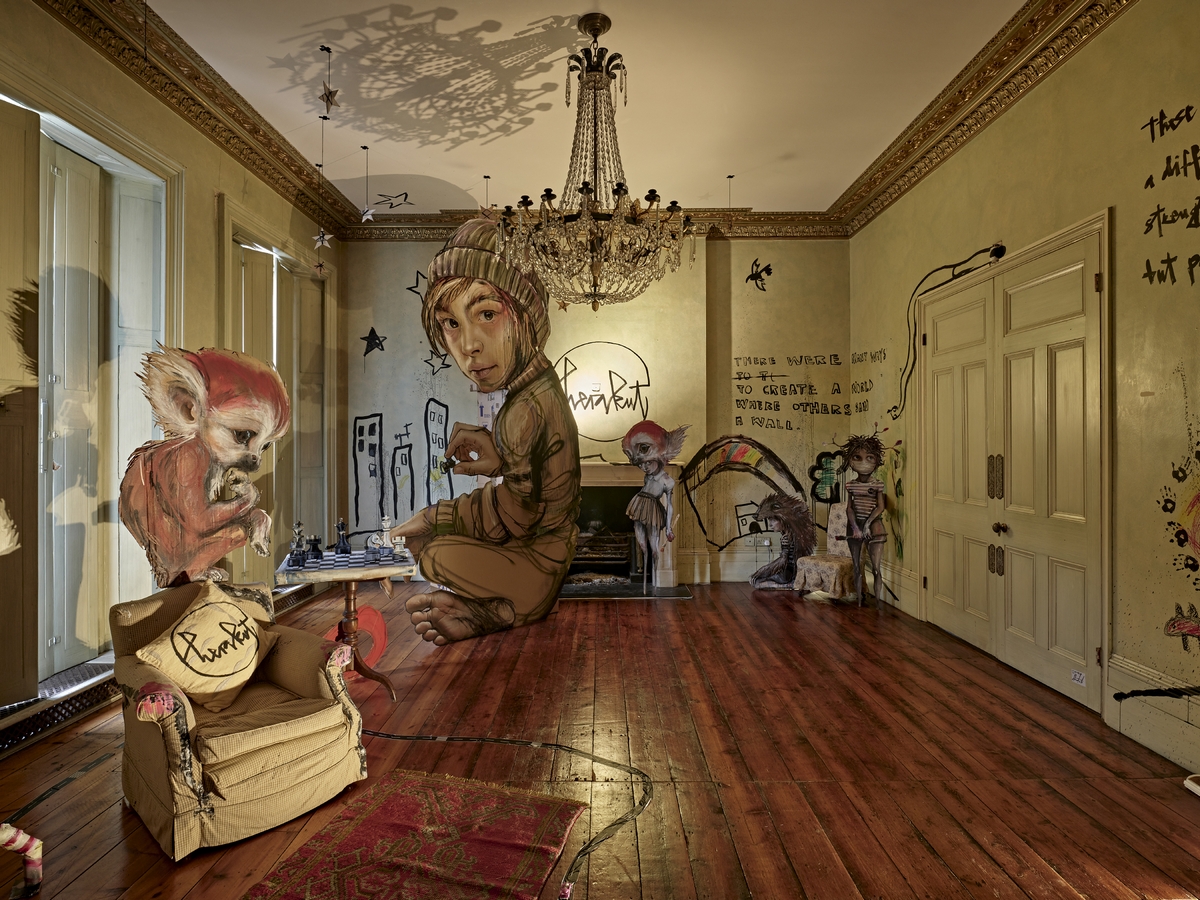
Herakut ©Nick Smith

Herakut ©Nick Smith
ZOER’s piece A Case Study of a House (2020) presents an anamorphic installation created through a ‘barricade’ of domestic objects and furniture stacked within the space. Highlighting both the reality and futility of partitions, the works symbolise the ‘shield’ of objects and material possessions used to evoke social or emotional ‘distance’ to others.
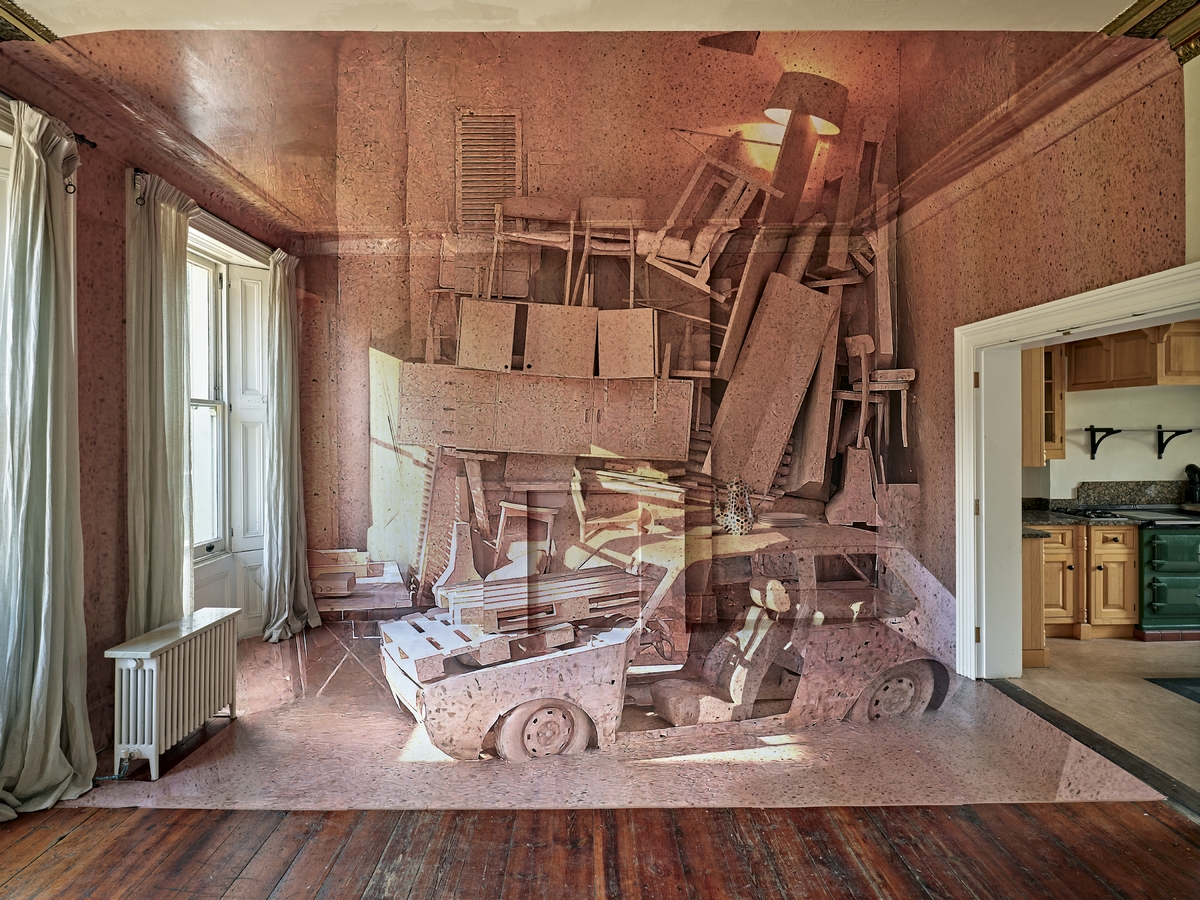
Zoer ©Nick Smith
You can book free tickets to select time slots to visit the London victorian townhouse from 24 July until 24 August. disConnect is also accessible to online audiences, where each work is further activated through an accompanying programme of digital initiatives, including downloadable art works, online videos, virtual tours and an Instagram Live interview series.
https://schoeniprojects.com/tickets/



